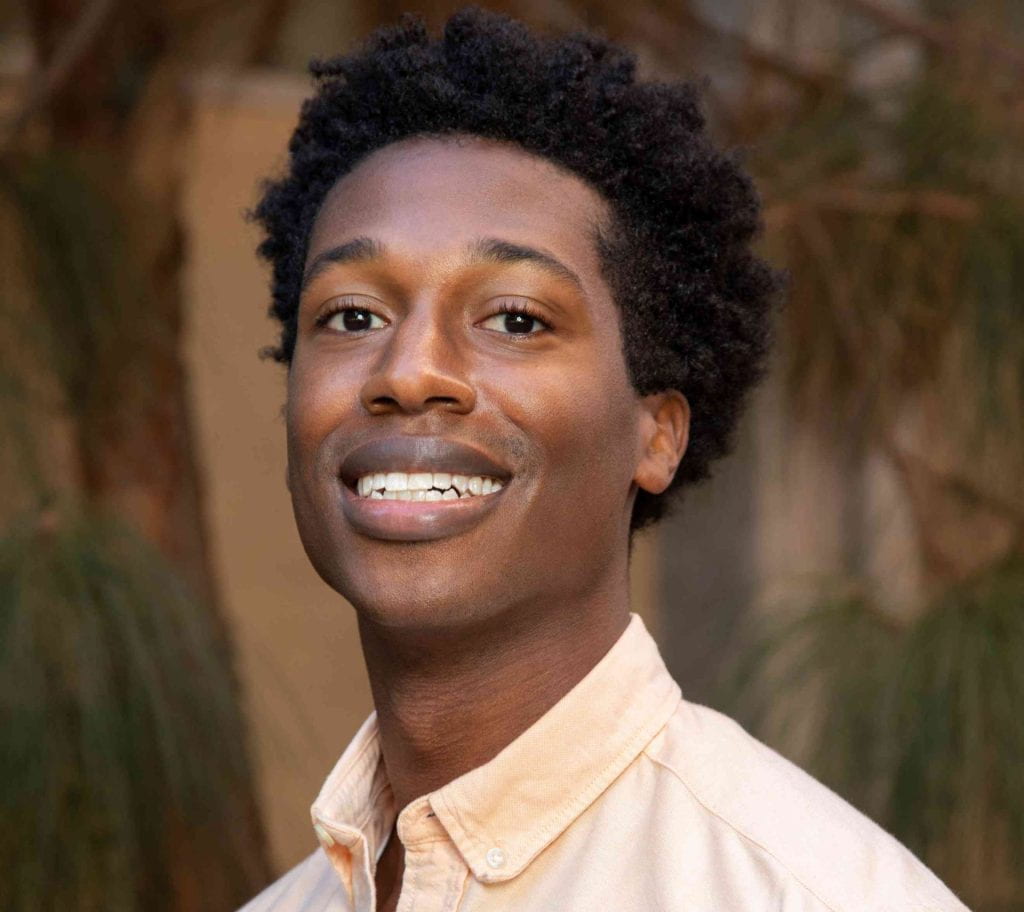By Lynn Lipinski

Dakari Quimby, PhD
Meet Dakari Quimby, PhD, newly appointed as Assistant Director of Outreach and Prevention Services at USC Student Health’s Counseling and Mental Health unit. Most people on campus who know him call him by the more informal title, Dr. Dakari. As one of the newest members of the team, his goal is to make mental health support on campus as common as a coffee run.
Originally from Maryland, Dr. Dakari completed his undergraduate degree at Washington University and earned his Ph.D. from Loyola University of Chicago. After working at Children’s Hospital in L.A. for three years, he served as the embedded counselor at the Black Student Cultural Center at USC for three years.
Dr. Dakari has always been drawn to community work and the way it can empower individuals with the tools they need to thrive. During his doctoral studies in Chicago, he worked to apply his academic knowledge, collaborating with a team to develop violence prevention programs and interventions in marginalized communities. His approach not only addressed the challenges these communities faced but also celebrated their resilience.
At USC, Dr. Dakari continues to embody these values, intertwining his commitment to mental wellness with his dedication to societal change. “You can only have so much of an impact working one-on-one,” Quimby said. He believes that true transformation happens when mental health professionals extend their reach beyond the therapy room and into the communities, meeting people in the full context of their lives.
Dr. Dakari’s hands-on work at USC’s Center for Black Cultural and Student Affairs (CBCSA) has made him a pillar of support for students seeking guidance. Early success came with a Johnson & Johnson grant that broadened access to counseling within the Black community, breaking down barriers and challenging stigmas.
Understanding people, what motivates them, their challenges—it really resonated with me.
Dakari Quimby
Collaboration is key for Dr. Dakari, who works closely with organizations like The Office for Health Promotion Strategy. His team’s response to outreach requests showcases the breadth of their work, from stress management workshops to events focused on cultural well-being.
He gained experience working on outreach initiatives like the Black Health Wellness series, which tackled everything from nurturing healthy relationships to embracing hair care as part of overall mental wellbeing. Stepping up from his previous counseling role, Dr. Dakari now leads a dynamic team, continuing to make mental health support more inclusive and accessible.
“It’s about showing that mental wellness isn’t just one thing—it’s everything,” he said.
This passion? It’s in his DNA. His parents, both educators, taught him the value of service and the importance of looking out for those in need. That AP Psychology class he took in high school? It wasn’t just a class—it was a calling. “I was hooked from day one,” he admitted. “Understanding people, what motivates them, their challenges—it really resonated with me.”
With a forward-thinking approach, Dr. Dakari emphasizes the role of technology, particularly the Therapy-Plus suite, in democratizing mental health care. Looking ahead, he envisions greater app adoption and more support aimed at helping students develop skills to prevent mental distress.
Dr. Dakari is optimistic about the future of mental health on campus, noting the growing awareness and decreasing stigma surrounding it. He sees a genuine eagerness to learn and grow among students and believes that mental health should be a regular part of the campus dialogue.
Ultimately, Dr. Dakari’s vision for USC is straightforward: a healthier, more supportive environment where mental health understanding is woven into the fabric of campus culture. With his team’s efforts, they’re well on their way to achieving just that.
